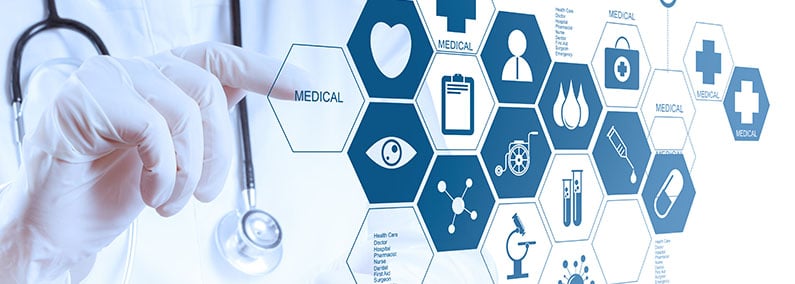
HIPAA Compliant Digital Healthcare in the Demand Economy
96% of Americans own a smartphone and are accustomed to the immediacy of the demand economy. Healthcare is no exception. Consumers will expect to communicate in real-time with primary care physicians and healthcare providers. To stay competitive, healthcare organizations require HIPAA compliant digital healthcare.
The internet is king for determining answers to health-related queries. These searches can vary to be on everything from health websites to social forums, and even on social media. Today, is it common for consumers to seek answers online and use several digital devices to further assist in their healthcare questions and concerns. It is essential that healthcare groups adapt to these industry changes, and adopt HIPAA compliant digital healthcare standards, in order to stay ahead of the curve.
According to a 2019 study by Stanford University, Center for Digital Health:
- 44% of respondents tracked a health indicator using digital tools
- 56% discussed their tracking data with their physicians
- 66% selected a healthcare provider based on online reviews
- 58% proposed a diagnosis to a physician based on what they learned online
- 56% proposed a treatment plan to a physician based on what they learned online
- 53% asked a physician to prescribe or discontinue a specific drug based on what they learned online
- 82% want to control who has access to their health data
- 81% want to know what health data has been collected about them
Digital Communication Enhances the Physician-Patient Relationship
Effective communication is critical in the physician-patient relationship. HIPAA compliant digital healthcare both enhances patient care and streamlines medical services. Test follow-ups, prescription refills, scheduling appointments, and simple health inquiries — are all significantly more efficient with digital communication.
However, even though most organizations have adopted some form of digital immediacy, the healthcare industry has struggled to keep up. The strict regulations required to protect Patient Health Information (PHI) imposed by HIPAA are necessary — but they do pose a barrier to adoption. Consumers want efficiency and convenience, but they also want personal information to be protected.
Bridging the Gap Between Compliance and Innovation
Technical innovators are seeking solutions that satisfy the expectations of digitally enhanced healthcare experiences and concerns about data privacy. As a result, HIPAA compliant digital healthcare solutions are rapidly evolving.
For example, Amazon began searching for a HIPAA Privacy Officer two years ago. Last year, it purchased the online pharmacy PillPack, acquired Health Navigator — a healthcare start-up that provides online symptom checking — and announced a partnership with Warren Buffet and JPMorgan Chase to create healthcare solutions stated to benefit all Americans.
Even Amazon’s Alexa Voice AI is now HIPAA compliant. The Alexa Skills Kit assists patients in performing healthcare needs from home through voice assistance. Certain Covered Entities (providers) and Business Associates (3rd parties) subject to HIPAA were invited to build Alexa’s skills. These skills include the ability to transmit and receive PHI (Personal Health Information) in a HIPAA governed environment. Ultimately, Amazon is engaging developers to expand Alexa’s skills so any consumer can perform functions from their home that previously required an office visit.
The Future of Healthcare is Digital
The race is on for HIPAA compliant digital healthcare services. As technology advances, consumers frustrated with traditional healthcare service protocols are exploring options with providers that employ the latest HIPAA compliant healthcare digital communication tools. Contemporary consumer preference favors healthcare experiences that are convenient, meaningful, and available on their most accessible devices — their phone and personal computer.
Digital tools that support HIPAA compliant digital healthcare in real-time communication on mobile devices — such as HIPAA compliant SMS-to-Chat functions — are rapidly developing and entering the healthcare market. These tools give patients more options for convenient care. They can eliminate unnecessary appointments for test follow-ups and prescription refills, streamline intimate physician-patient communication, and significantly improve overall patient satisfaction.
The future of healthcare is digital. Platforms that drive patient engagement and improve operational and administrative efficiencies will become the norm. Healthcare organizations will struggle to compete that lag in enacting digital solutions and functionalities. However, the healthcare organizations that adopt HIPAA compliant digital healthcare solutions today will retain patient loyalty tomorrow.



